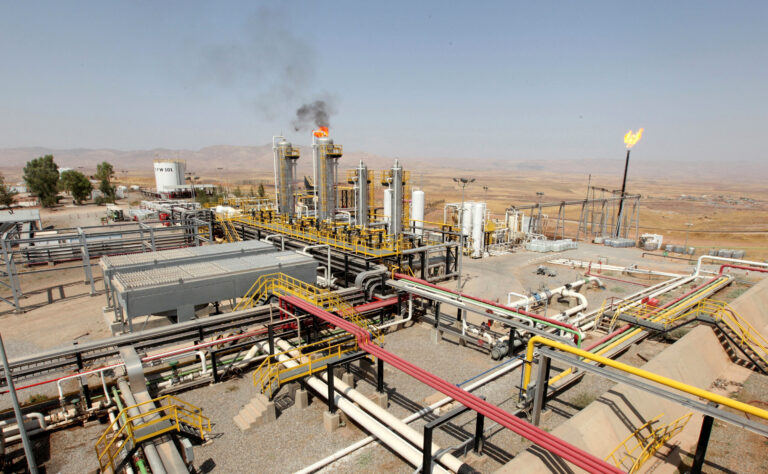In September, Iraq’s crude oil production displayed a slight uptick, maintaining its upward momentum, according to data analyzed by Iraq Oil Report. The nation’s daily crude oil production edged up from 4.71 million barrels per day (bpd) in August to 4.73 million bpd in September. This marginal increase can be attributed to a complex interplay of factors affecting both the Kurdistan Regional Government (KRG) and federally controlled oil fields.
OPEC reporting for Iraq, via secondary sources, that Iraq produced 4.307 million bpd in September.
One highlight was the performance of KRG-controlled fields, according to the Iraq Oil Report, which collectively saw a boost of approximately 50,000 bpd. Producers in this region successfully tapped into more buyers within the domestic market, bolstering their production figures.
Iraq, the second-largest oil producer in OPEC, primarily exports approximately 85% of its crude oil through southern ports. Nevertheless, the northern transportation route via Turkey still contributes approximately 0.5% to the global oil supply and it is not operational currently. KRG’s oil exports follow a path through a dedicated KRG pipeline to Fish-Khabur, situated along the northern Iraqi border. From there, the oil is directed into Turkey and subsequently pumped to the port of Ceyhan on Turkey’s Mediterranean coastline.
However, the overall production gains were partially offset by declining output from fields under federal control. These fields, managed by the central government, recorded a decrease from 4.51 million bpd in August to 4.48 million bpd in September, according to the Iraq Oil Report. The primary reason for this dip was a slight decline in output from federally controlled fields in Kirkuk.
The decrease in Kirkuk’s production may be indicative of the challenges facing Iraq’s oil industry, including maintenance issues, geopolitical tensions, and infrastructure constraints. While Kirkuk has historically been a significant contributor to Iraq’s oil output, it is susceptible to fluctuations due to various operational and political factors. Iraq, one of the world’s leading oil producers and exporters, relies heavily on revenue generated from its oil sector to fund essential services and development projects. The fluctuations in oil production can have significant implications for the nation’s economic stability and growth prospects.
Source: Oil & Gas


